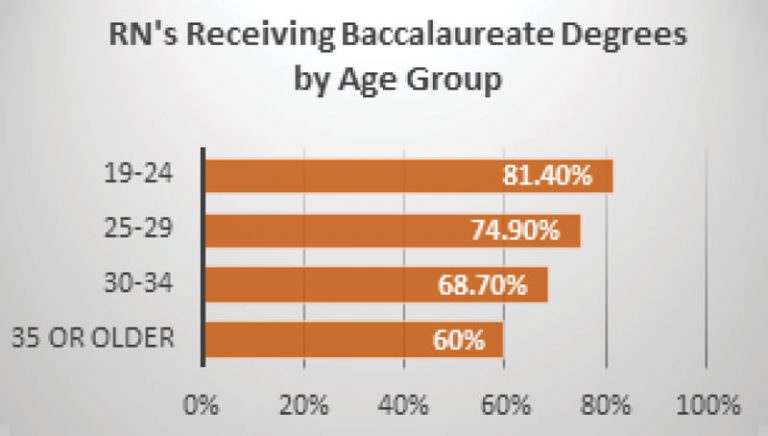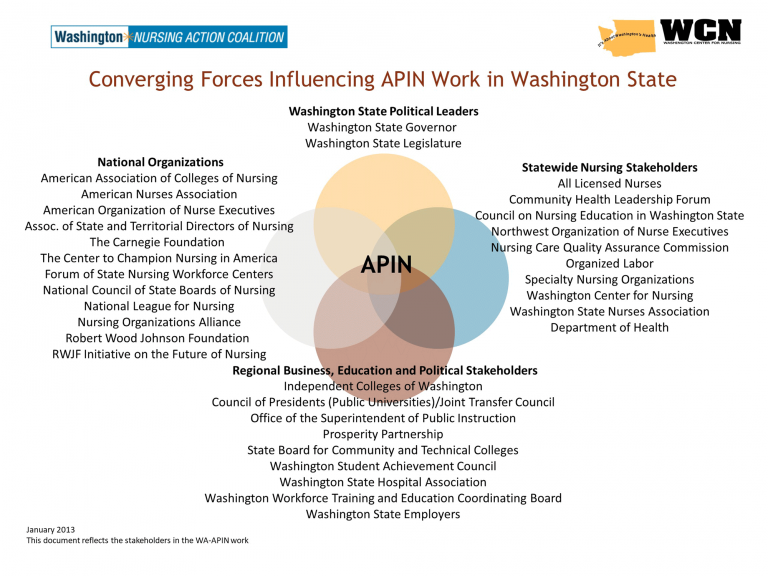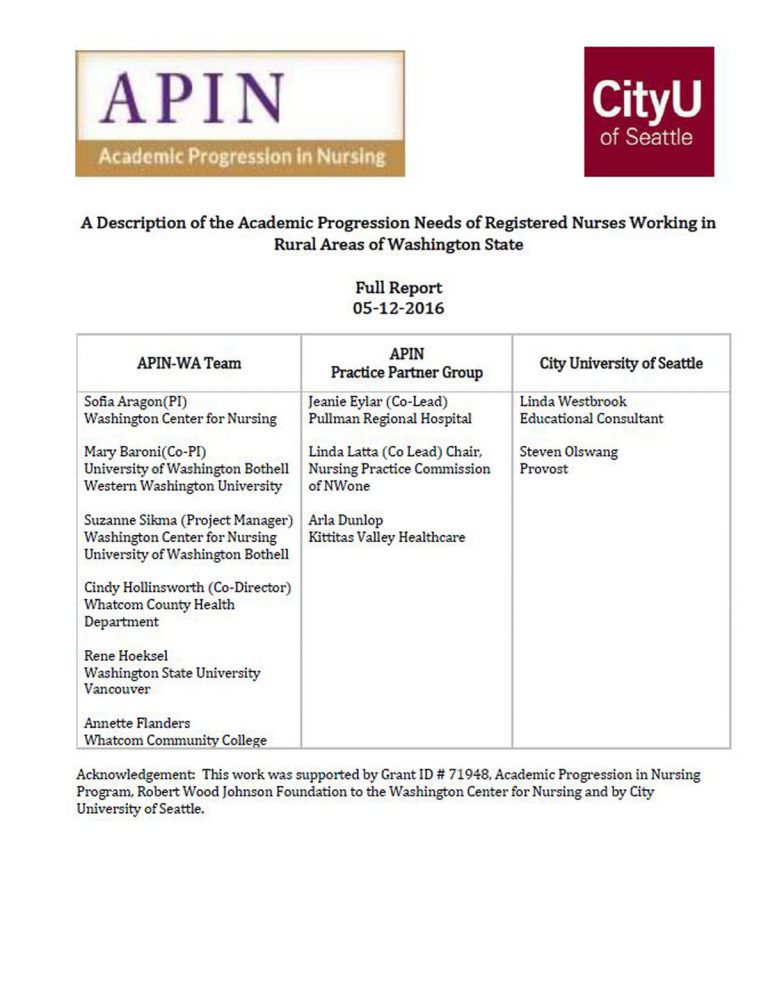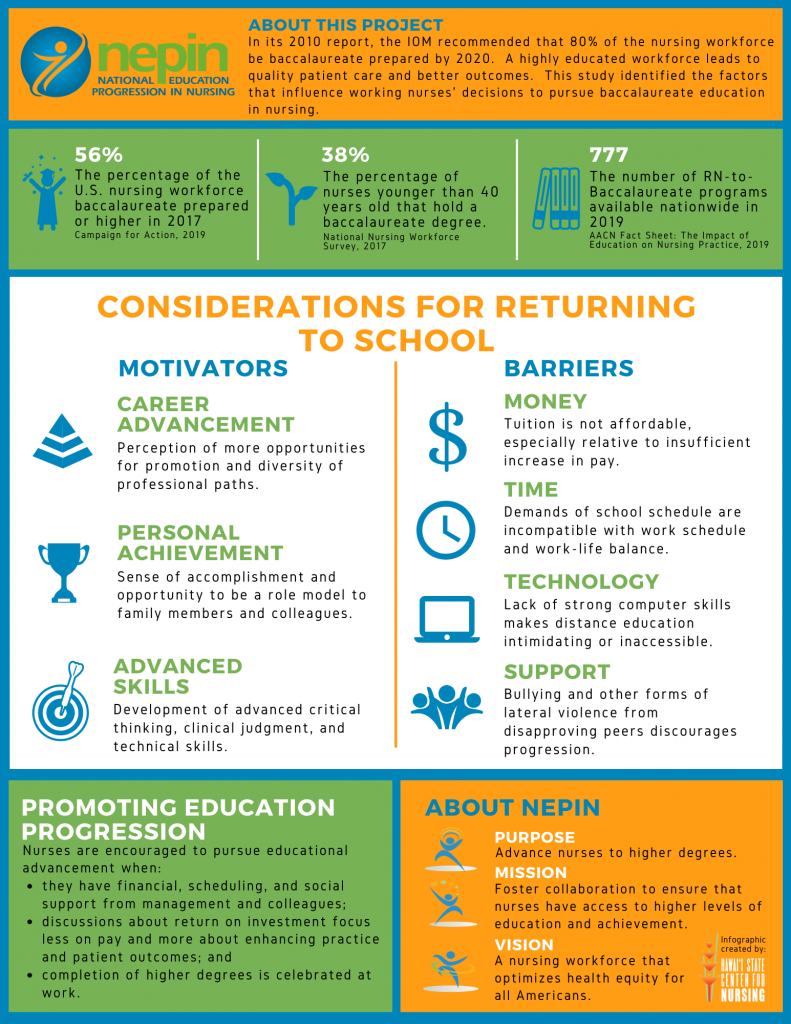Academic Progression in Nursing
Connect with WCN
- Home
- Career & Leadership Development in Nursing
- Academic Progression in Nursing
Academic Progression in Nursing
Academic Progression in Nursing (APIN) in Washington State

As our population’s need for nursing care changes, nurses must also be prepared to plan for and deliver care while leading health care into the future.
Academic Progression in Nursing (APIN) started in 2012 when the Robert Wood Johnson Foundation (RWJF) awarded grants to nine state nursing workforce centers, including Washington State’s WCN. Through the grant, the RWJF aimed to advance recommendations in the IOM’s Future of Nursing: Leading Change, Advancing Health report towards the building of a more highly educated, diverse nursing workforce. The grant was coordinated through the Center to Champion Nursing in America, an initiative of AARP, the AARP Foundations, and the RWJF.
The RWJF APIN grant strongly focused on the IOM’s recommendation of increasing the percentage of nurses with a BSN or higher degree to 80 percent by 2020 and to increase diversity in the nursing workforce to strengthen equity in health care delivery.
The RWJF APIN grant to WCN closed in 2016, however, the important work of APIN to improve academic progression in nursing in Washington state continues and is currently supported under the WCN’s grant from the Washington State Department of Health.
APIN goals include:
- Implementing the Direct Transfer Agreement in Washington.
- Identifying best practices in education to further expand access, capacity and quality of RN to BSN education in the state.
- Working with practice partners to improve workplace support for academic progression.
- Continuing efforts to make the nursing workforce more diverse and inclusive.
As of 2020, 63% of surveyed nurses have received a BSN or higher degree. Although we have made progress, we are short of the IOM’s goal in this area. However, when we look at the data by age group, we can see the impact of APIN’s work in nurses between the ages of 19-24, this age group has achieved the IOM’s goal with 81.4% of them receiving a BSN or higher degree. This is according to the results of the survey, Washington State’s Registered Nurse Workforce:
Results of a 2018 Survey report released by WCN and the UW Center for Health Workforce Studies, which showed the trend is moving towards a higher educated nursing workforce in our state.
APIN identifies benefits of nurses receiving a BSN or higher degrees as:
- Increases the leadership pool for progression to advanced levels
- Fosters skills in leadership, systems thinking, health policy, problem-solving, moving patients along the continuum of care
- Provides a bigger picture or larger scope of understanding of nursing as a discipline
- Provides better communication and teamwork skills
- Provides nurses with more credibility, more respect from interdisciplinary teams, and increased professionalism
- Allows for increased career mobility, employment opportunities, and possibilities for advancement
- Can lead to increased self-confidence, self-esteem, and personal satisfaction
- Offers more opportunity to be part of leadership conversations, and an increased ability to change the culture of the institution and be a part of practice improvement
APIN identifies common barriers to nurses receiving a BSN or higher degree as:
- Serious financial considerations: tuition costs, lack of financial assistance, reductions in FTE leading to fewer overall earnings and reduced benefit coverage, no clear understanding of financial benefit with BSN degree
- Challenges with meeting program pre-requisite requirements (especially statistics), an inability to transfer credits
- Lack of available support systems, such as: meeting childcare needs, flexible scheduling from employers, and tutoring
- Inaccessibility of programs entry into programs is competitive and overall is not as available in rural locations
National Academic Progression in Nursing (NEPIN)
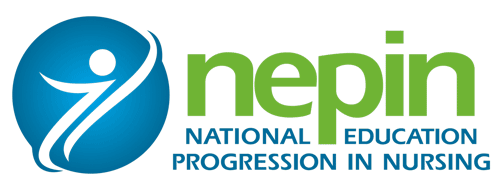
NEPIN Mission:
Foster collaboration to ensure nurses have access to higher levels of education and achievement. NEPIN’s goal is to have 1 million incumbent and 90% of new ADN graduates to the BSN or higher by 2025.
NEPIN Whitepaper: Equity, Achievement & Thriving in Nursing Academic Progression
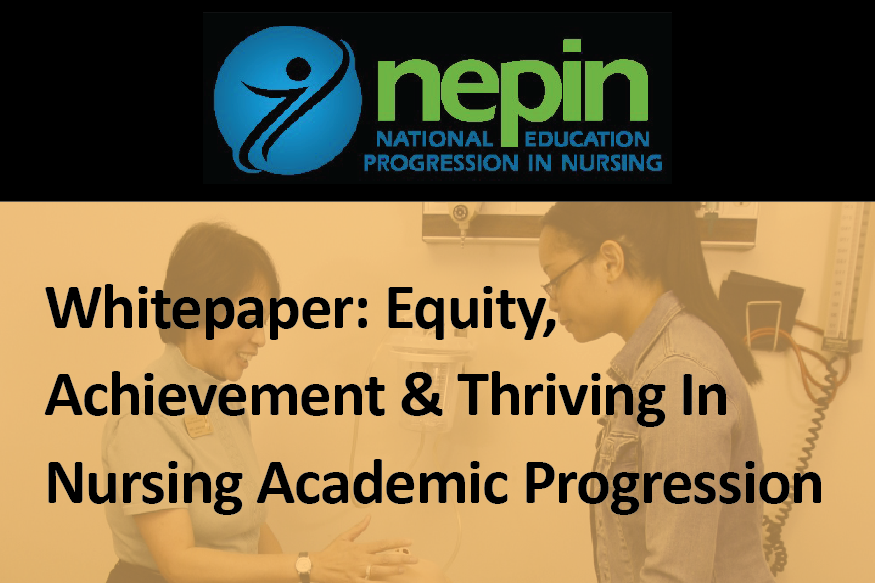
The National Education Progression in Nursing’s latest Whitepaper: Equity, Achievement & Thriving In Nursing Academic Progression, discusses the need to address the lack of diversity in nursing if the nursing workforce is to meet the needs of patients and reduce health disparities for vulnerable populations. It also gives clear and implementable strategies for achieving this goal.
“Schools of nursing and employers of nurses should implement institutional and organizational efforts to achieve diversity, equity and thriving in nursing education and practice settings. A strategic plan that addresses diversity, equity, inclusion and cultural proficiency, is essential and must be adopted across all aspects of the organization including teaching, research, service and practice. The plan must include tactics needed for goal attainment and financial and human resources. The plan must also contain methods for tracking the progress toward achieving the specified diversity goals for the organization.”
Open Whitepaper here.

